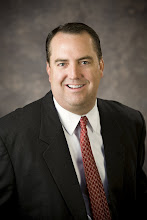Mortgage brokers get the boot By Jesus Lopez Jr. Standard-Examiner staff
• Utah
With interest rates and house prices at historic lows, it is the perfect time to buy a home. But before a purchase is made, a bank loan officer or a mortgage broker has to approve a home loan for the buyer. Bank of Utah Chief Financial Officer Branden Hansen cautions prospective buyers to make sure the person they are dealing with is reputable."As a bank and being involved with the mortgage industry," Hansen said, "we had to compete with a lot of people we feel are less than scrupulous."Luckily, new laws are in place to protect home buyers. A new regulation that went into effect Jan. 1 requires all mortgage loan originators, associate lending managers, branch lending managers, principal lending managers and mortgage entities to be licensed. Those with previous licenses had until Dec. 31 to meet the federal Nationwide Mortgage Licensing System deadline for renewal and had to complete the required education and test. All mortgage originators, regardless of who they work for, are issued an identification number. Their activity can be tracked through the Utah Division of Real Estate. Hansen said he applauds the efforts of the government; including making licenses a nationwide requirement. Although Utah has generally maintained good practices, previously a disreputable mortgage broker could leave another state and set up shop in Utah. The nationwide licenses make it possible to track lenders through an identification number."In its heyday, 2006-2007, there were mortgage brokers on every corner," Hansen said. "These people were not very well regulated. They pretty much did whatever they wanted to."It was a business that attracted people looking for easy money."The ranks of loan officers swelled to astronomical numbers," Hansen said. "There wasn't anyone watching what you were doing."The biggest draw was the subprime mortgage market. Many people came in that did not understand the industry, Hansen said. They were basically just sales clerks taking signatures. It got to a point that Hansen said people would originate loans and hand them off to a friend who had a license. After the market collapsed, the number of mortgage brokers dwindled. According to the Division of Real Estate, 2010 began with 9,027 mortgage licensees. Only 5,200 of those licensees transitioned onto the database by the May 31, 2010, deadline. Of the 5,200 licensees in the system, only 2,000 have requested renewal and met requirements. Hansen suspects many joined up with banks and credit unions, but most fled the industry altogether."I think the loan officers that are left are pretty successful, pretty experienced," he said. Those who failed to request renewal will have to reapply for licensure by completing 60 hours of relicense education, pass both state and national exams and reapply for a license. However, Hansen said, this regulation should have been put in place before the market collapsed. The problems were in so many parts of the system that the collapse was catastrophic."It's kind of like we're getting this regulation a day late," Hansen said. "It wouldn't have prevented it entirely, but it could have helped."
skip to main |
skip to sidebar

MLO NMLS#: 315218 Equal Housing Lender www.garydickson.net
Labels
- Rate Watch (503)
- Customer Recomendation (32)
- Closing Photo (23)
- Finance Update (8)
- TAX CREDIT (7)
- Industry News (4)
- Professional Endorsement (4)
- Mortgage Backed Securities (2)
- Tax Return Questions (2)
- 2nd Credit Report Requirement (1)
- APR Explanation (1)
- Application Documentation Checklist (1)
- Gold (1)
- Holt Closing (1)
- Housing Affordability Study (1)
- Industry Terminology (1)
- dfdfdfdfdfdfdfdfdfdfdfdfdfdfdf (1)
About Me

- Gary Dickson
- Ogden, Utah, United States
- Serving Mortgage Customers Since 1988
